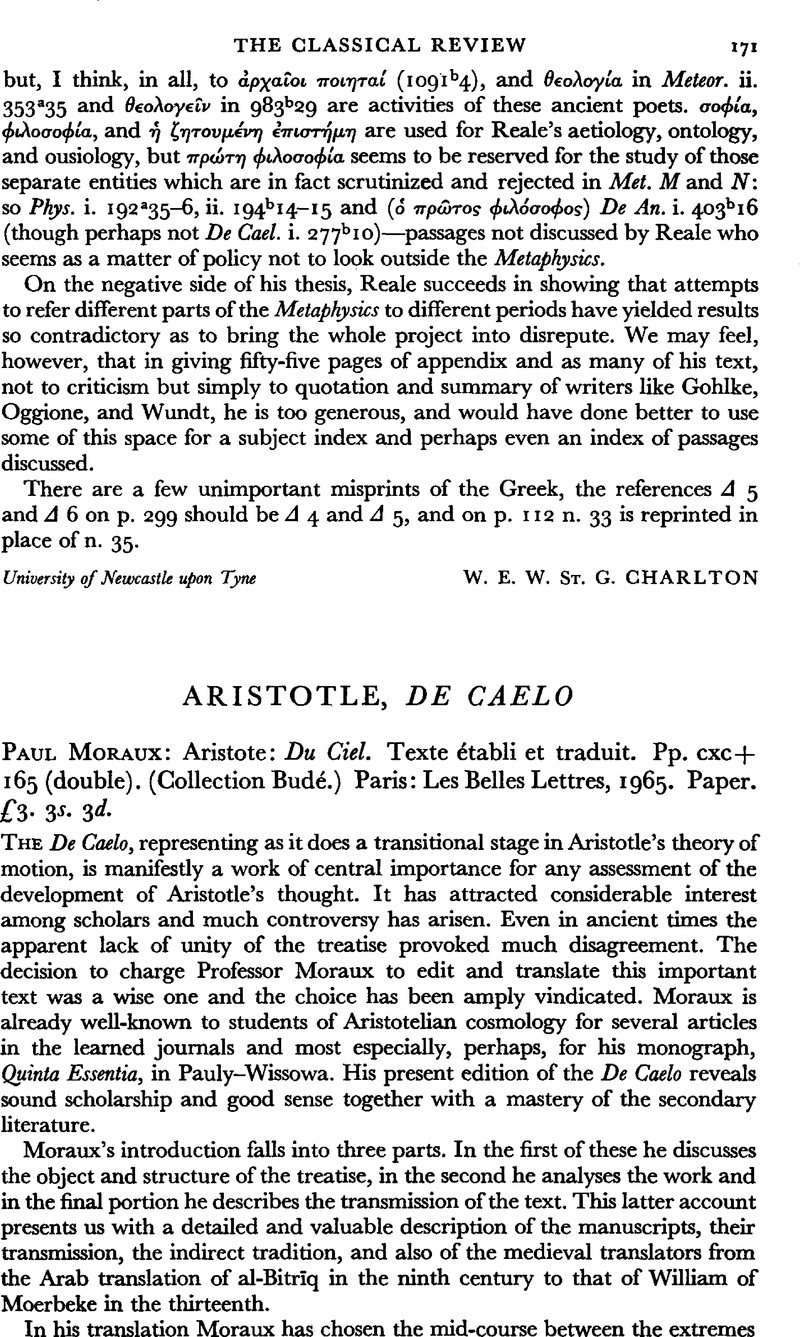Published online by Cambridge University Press: 27 February 2009

page 172 note 1 Pour I‘histoire de la science hellène (Paris, 1930), chapter x.Google Scholar
page 172 note 2 Plato and Parmenides (London, 1939), pp. 58–59Google Scholar; C.Q. xvi (1922) and xvii (1923). More recently a modification has been put forward by Raven (The Presocratic Philosophers [Cambridge, 1957], p. 247 n. 1), who claims that the Pythagoreans only tacitly assumed rather than explicitly asserted that the units were spatially extended.
page 172 note 3 Notably Calogero, Heidel, van der Waerden, Fraenkel, and Vlastos.
page 172 note 4 Viz. Aetius i. 3. 19 (D.–K. 51A2), which implies that the tradition did not regard number-atomism as an original feature of Pythagorean thought.
page 172 note 5 Owen, G. E. L., ‘Zeno and the Mathematicians’, P.A.S. x (1958), 212.Google Scholar
page 173 note 1 It must be acknowledged, however, that the interpretation of this text is controversial.
page 174 note 1 For evidence of this practice cf. Aristotle De Gen. An. 780b 19ff. and Pliny N.H. ii. 14 (11). See, further, A. von Humbolt, Cosmos (translated from the German by E. C. Otté), vol. iii (London, 1851), p. 72, n. 20
page 174 note 2 Whether or not apocryphal.